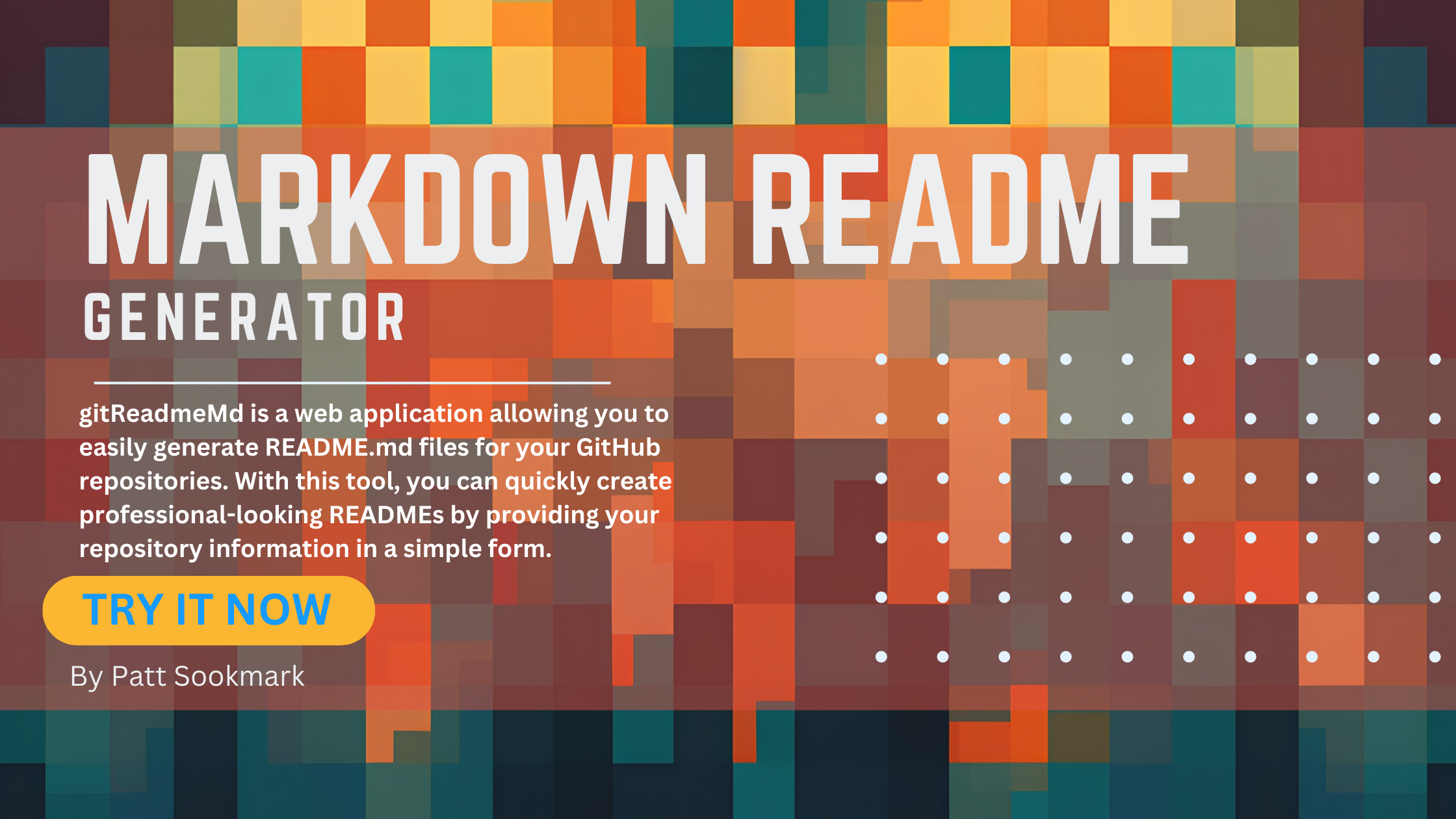
My Journey of Simplifying README - a Markdown Readme Generator. 🖋️📝🖍️
Readme Generator:getReadmeMD
The other day, I grew tired of the repetitive process of creating README.md files for my GitHub repositories. It felt like a never-ending task that consumed time and energy. That’s zwhen it hit me: “There must be a better way!”.
Driven by this frustration and armed with my trusty coding skills and a strong cup of coffee, I set out to create a web application that would make README creation a breeze. I called it gitReadmeMd.
The first step was envisioning a user-friendly interface to guide users through the README generation process. I wanted it to be intuitive, with clear input fields to capture all the essential information about the repository. After all, simplicity was the key.
With the design in mind, I started coding.HTML5 provided the foundation, while Tailwind CSS emerged as my styling superhero. Its utility-first approach enabled me to swiftly craft a visually appealing interface without drowning in the complexities of custom CSS. The grid system provided an intuitive way to structure elements on the page, and I particularly enjoyed using column span as a guide to the width of the div elements. It was like having a visual blueprint to ensure perfect alignment and spacing.
I turned to vanilla JavaScript to handle form inputs and generate the Markdown file. I added an event listener to the form’s submit button, capturing each form submission. Retrieving the values entered by the user from each input field, I cleverly constructed a markdown string that perfectly showcased their repository.
I spent about 10 hours getting to the deliverable stage, but I want to advance gitReadmeMd even further. In the next iteration, I envisioned a live preview section that allowed users to visualize their README in real time before generating the file. It was like having a trusted mirror, ensuring everything was just right.
To further enhance the user experience, I plan to implement a download feature. This nifty addition would empower users to save the generated README.md file directly to their local machines with a simple click. A small detail, but it would make the process even more convenient.
Recognizing the power of collaboration, I opened the doors for others to contribute by creating an open-source GitHub repository for gitReadmeMd. Suggestions, improvements, and bug reports became integral to the project’s growth. I am thrilled to see the developer community come together, injecting their expertise and creativity into the mix.
So whether you’re starting a new project or updating an existing repository, give gitReadmeMd a try. Let it be your trusted companion in crafting comprehensive and well-structured README.md files. And remember, if you encounter any issues or have valuable feedback, don’t hesitate to reach out. Together, we can make the world of READMEs a better place.
Happy coding!